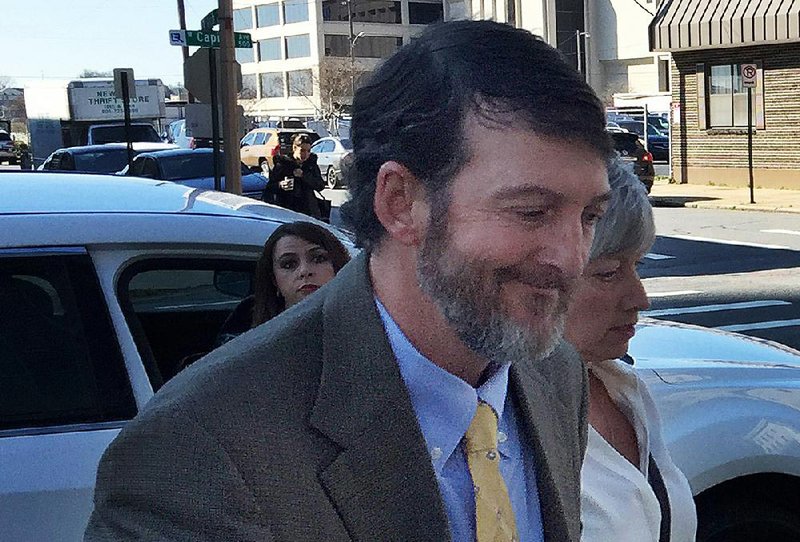Former Judge Michael Maggio has not shown sufficient reason that he should remain free pending an appeal of his bribery conviction, the U.S. attorney's office argued Thursday.
"Maggio has not met his burden of establishing that he is entitled to release pending appeal, and he should proceed directly to jail on Monday, May 23," the government said in a filing in U.S. District Court in Little Rock.
U.S. District Judge Brian Miller last month sentenced Maggio, 54, to begin serving a 10-year prison sentence for bribery on that date.
In a motion filed earlier this week, Maggio said the court should allow him to remain free pending his appeal to the 8th U.S. Circuit Court of Appeals in St. Louis.
The ousted judge for the 20th Judicial Circuit -- which includes Faulkner, Van Buren and Searcy counties -- said he would appeal on the grounds that the federal bribery statute to which he pleaded guilty more than a year ago did not legally apply to him. That was one of the same arguments Maggio made last month when he asked Miller to let him withdraw the January 2015 guilty plea.
Prosecutors countered Thursday that Maggio waived his right to appeal on this argument when he signed his plea agreement. They quoted from the transcript of his plea-withdrawal hearing in March when Miller had Assistant U.S. Attorney Julie Peters read the appellate waiver out loud. Miller then asked Maggio if he had listened to the statement and said, "And you understood those waivers?"
"To both questions, Maggio answered, 'Yes, sir,'" prosecutors wrote.
A guilty plea would not have precluded Maggio from arguing that the federal statute under which he was charged was unconstitutional, prosecutors said. But they wrote, "Maggio has never asserted that [the statute] is unconstitutional on its face."
Rather, his argument is "a narrow one claiming that [the statute] cannot be applied to a judge who takes a bribe in a civil case," they wrote.
The government referred to Maggio's admission that in July 2013 he lowered a Faulkner County jury's $5.2 million judgment in a negligence lawsuit to $1 million in exchange for contributions to his since halted campaign for the Arkansas Court of Appeals.
"There is no close question about whether these facts constitute a quid pro quo sufficient for the Court to conclude that Maggio violated" the bribery statute, prosecutors wrote.
Prosecutors noted that Maggio had reserved the right to appeal his sentence if it exceeded the sentencing guideline range as his did. If he raises this issue, they said, it would be "properly" before the appeals court. Maggio did not, however, include the sentencing issue in his motion for release pending appeal.
Citing case law, prosecutors also argued that, for a defendant to remain free, the issue on appeal must present "a close question" on a matter key to the merits of a conviction. Not sufficient would be an issue on which "reasonable judges could differ," prosecutors wrote, quoting from the filing by Maggio's attorney, James Hensley Jr.
Prosecutors said another argument about "the honest services fraud statute" was "puzzling" since Maggio was convicted under the federal programs bribery law, not the fraud statute.
State Desk on 04/22/2016


